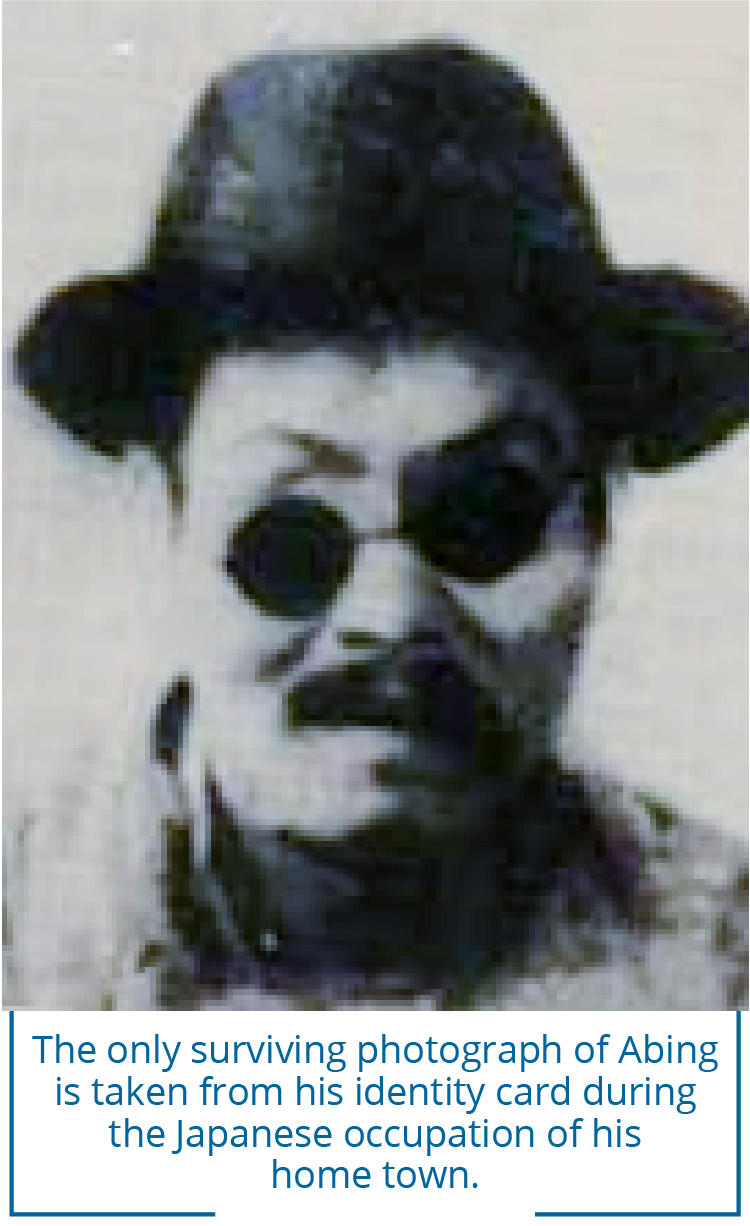BIG WAVE WASHES THE SAND (大浪淘沙)
Trad. arr. Abing (Hua Yanjun)
(b. Wuxi, China, August 17, 1893;
d. Beijing, December 4, 1950)

Big wave washes the sand was written by Abing, a celebrated blind player of both pipa and erhu, the two-stringed Chinese violin. He was known to relatives only as Abing until a more formal name was given when he went to live with his father, a Taoist priest, at the age of eight. His musical training was rigorous until 1914 when his father died, and Abing took charge of the temple with his cousin. However, life went downhill from there, first with an opium addiction, then, a little over a decade later, with syphilis. After losing his sight, he became homeless and driven to performing in the public square of his hometown of Wuxi, Eastern China. Some sources attribute the melodies in Big wave washes the sand to Taoist and Buddhist tunes of the Yuan Dynasty, with the music reflecting both strength and the softness of the sea and sand. The music sighs as if expressing the composer’s misfortune.